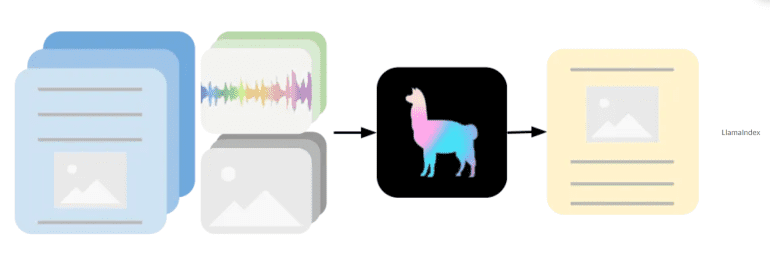- Jerry Liu pioneers LlamaIndex after identifying limitations in GPT-3’s handling of private data.
- LlamaIndex, now a company, offers a comprehensive framework for developers to integrate LLMs with personal or organizational data.
- The framework supports various data sources and formats, with tools for ingestion, management, and retrieval tailored for LLM applications.
- Recent seed funding of $8.5 million signals investor confidence in LlamaIndex’s potential.
- Plans for an enterprise solution include “protection-grade” data connectors and indexing capabilities for domain-specific data.
Main AI News:
In the wake of experimenting with OpenAI’s GPT-3, former Uber research scientist Jerry Liu identified constraints regarding the model’s handling of private data. To address this, he initiated LlamaIndex, an open-source endeavor aimed at broadening the utility of large language models (LLMs) like GPT-3 and GPT-4.
“Leveraging LLMs offers remarkable potential for knowledge extraction and reasoning,” Liu shared in an email exchange with TechCrunch. “However, there are inherent limitations.”
Following a surge in popularity, with over 200,000 monthly downloads, Liu teamed up with Simon Suo, his former colleague at Uber, to transform LlamaIndex into a fully-fledged enterprise. Today, LlamaIndex, now a company, provides a framework to empower developers in harnessing LLM capabilities with personal or organizational data.
“LlamaIndex assists developers in managing their data for LLM applications,” Liu explained. “Our toolkit boasts comprehensive depth in this aspect, offering seamless integration with other developer tools.“
The LlamaIndex framework facilitates the integration of data from various sources such as PDFs, PowerPoints, and apps like Notion and Slack, alongside databases like Postgres and MongoDB, with LLMs. It encompasses connectors for data ingestion, supports diverse data formats, and facilitates data structuring for optimal utilization with LLMs.
Moreover, LlamaIndex introduces a data retrieval and query interface enabling developers to input prompts and receive contextually enriched outputs.
“While other LLM application frameworks provide fundamental building blocks, LlamaIndex distinguishes itself by prioritizing the integration of data sources with LLMs,” Liu elaborated. “Our toolkit emphasizes data ingestion, management, indexing, and retrieval tailored for LLM applications.”
The prospect of enhancing LLM capabilities attracted investors, resulting in $8.5 million raised in a recent seed funding round, spearheaded by Greylock with participation from notable angel investors.
So, how will LlamaIndex allocate these funds? Liu outlined plans to develop an enterprise solution based on the open-source LlamaIndex project, slated for release later this year. This solution will include “protection-grade” data connectors for handling large data volumes and indexing domain-specific data.
“LlamaIndex remains agnostic to specific technologies, ensuring compatibility with evolving LLM advancements,” Liu assured. “Given the rapid pace of the AI industry, the technology landscape is likely to evolve in the coming months.“
Conclusion:
LlamaIndex’s initiative to enhance LLM capabilities presents a significant opportunity in the market. By addressing limitations in handling private data, offering a comprehensive framework, and attracting substantial investment, LlamaIndex is poised to play a pivotal role in empowering developers to leverage LLMs effectively. As the demand for advanced AI solutions continues to grow, LlamaIndex’s ability to provide scalable and adaptable solutions positions it favorably in the evolving market landscape.

